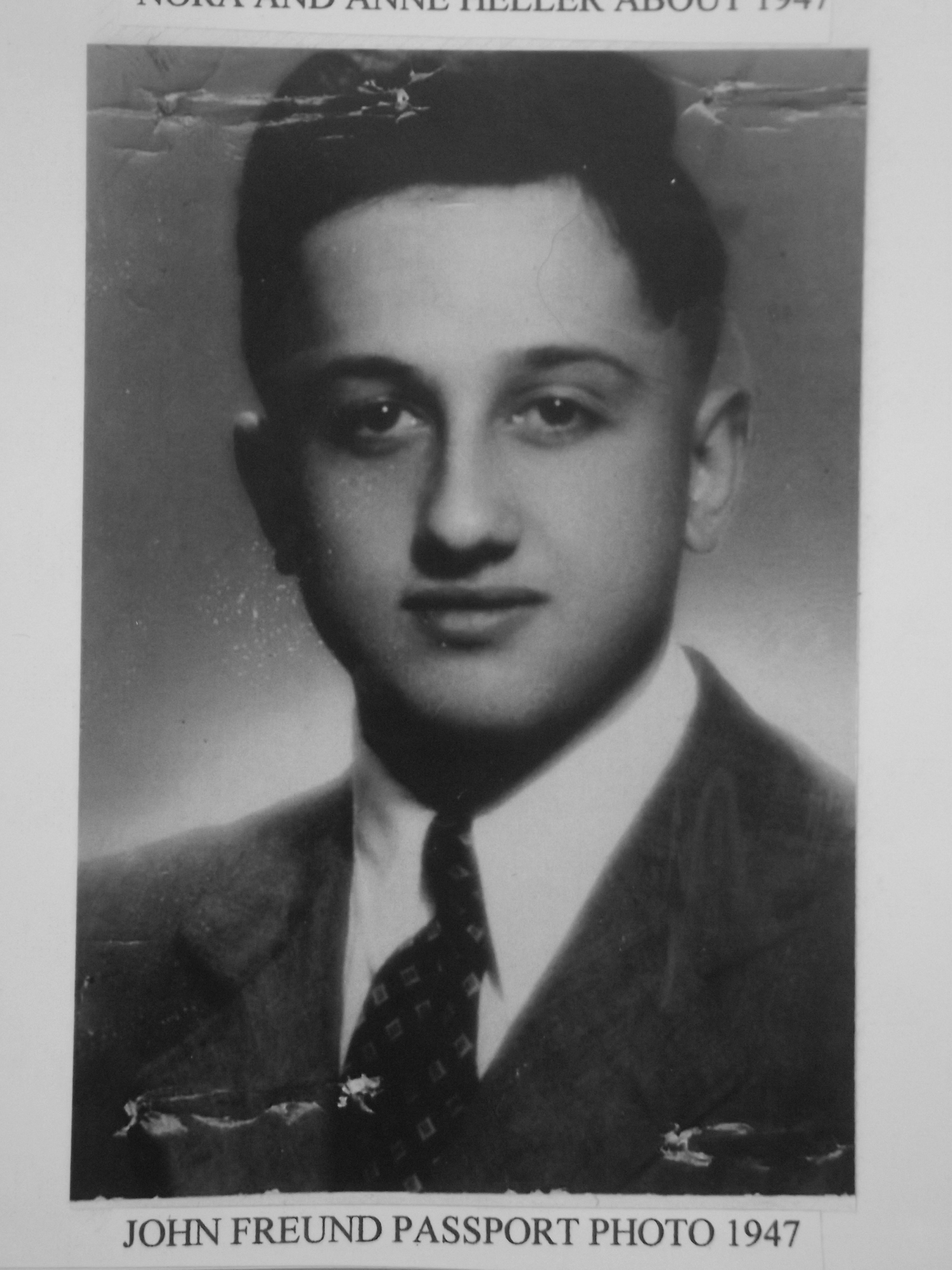I began to call our group Birkenau Boys

Stáhnout obrázek
John Freund was born as Hanuš Jan Freund on June 6, 1930 in České Budějovice in the family of paediatrician Gustav Freund. At the time before the outbreak of WWII he could have become one of the ‘Winton‘s children,‘ but the family did not use the opportunity. In April 1942 the Freund family boarded a transport and they spent the following year and a half in the ghetto in Terezín, where John‘s father worked as a doctor and John lived in the facility for young people which was led by Arne Ehrlich. The family was transported to the concentration camp in Auschwitz in December 1943. They lived together in the so-called family camp until April of the following year. After the liquidation of this family camp and the subsequent selections, John got included in a group of boys who were to be sent for work in spite of their young age, and who later became called ‘Birkenau Boys‘ by John himself in publications he wrote. His mother died in a gas chamber, and his father and brother were shot during an evacuation march under unknown circumstances. In January 1945 John was included among prisoners who were marched inland from the abolished concentration camp. He survived the death march, then he spent two months in the camp Flossenbürg and he was eventually liberated by the American army during another death march. After the end of the war he returned to České Budějovice, but since there was nobody with whom he could stay, he went to the countryside to help with agricultural work. After the summer vacation he began studying grammar school in Prague and he lived with his aunt Anna Weissová who became his guardian. After February 1948 he accepted an offer from a Canadian Jewish organization and he went to Canada, where he has been living since then. In the 1980s he co-authored the book After Those Fifty Years: Memoirs of Birkenau Boys. He funded its publication by himself and it was published for the first time in 1992. He is also the author of memoirs Through the Valley of the Shadows of Death.









